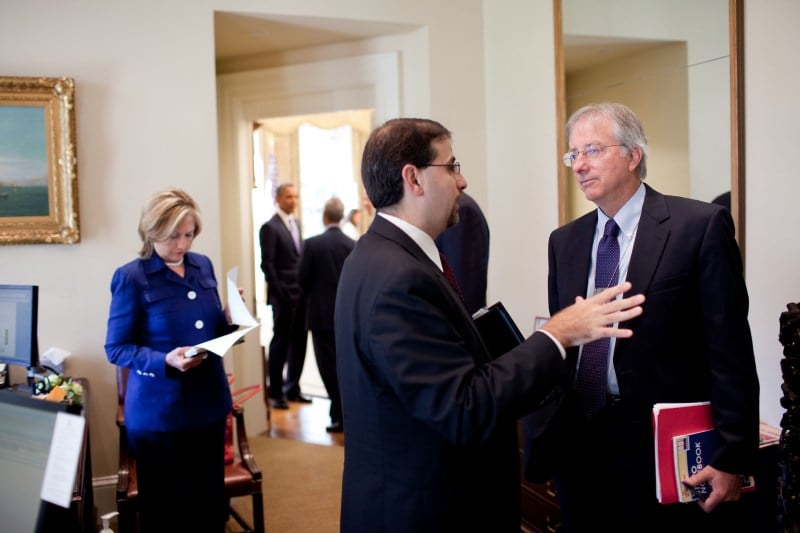Diplomat Dennis Ross discussed the complexities of peacemaking in the Middle East, specifically in the Arab-Israeli Conflict, on Wednesday evening at Hillel.
“I’ve spent the last 30 years trying to negotiate peace between Israelis and Palestinians,” said Ross in an interview with The Daily. “The only solution is two states for two peoples.”
Ross was invited to campus as part of programming for Israel Week, where Stanford students can engage in a full week of activities related to Israel and Jewish faith.
“We’re in a moment right now that doesn’t always feel quite so hopeful, so we were looking to bring someone on campus that could bring some hope and a vision of what’s possible,” said Rabbi Jessica Kirschner, the executive director of Hillel.
Ross has worked in various administrations in various capacities, serving as director of policy planning under President George H.W. Bush, special Middle East coordinator under President Bill Clinton and as special advisor to former Secretary of State Hillary Clinton. As a diplomat, he helped negotiate the Israel-Jordan peace treaty, the 1994 agreement between Israel and Jordan that ended 46 years of war between the two powers and finalized West Bank and the Gaza Strip borders. He has also authored four books about U.S. policy in the Middle East.
Ross admitted that the current situation in the Middle East seems bleak.
“When I go to my synagogue on Saturday mornings, people come up to me and they say: Can you tell us something good?” Ross said. “And I say, well, if you’re asking about the Middle East, it’s going to be hard to do.”
Ross laid out steps for both sides of the Israel-Palestine conflict to achieve a two-state solution.
“We should be encouraging the Israelis to take steps that can preserve a two-state outcome, even if you can’t produce it right now,” Ross told The Daily, outlining goals such as convincing Israel to stop expanding its reach beyond its allotted land.
“On the Palestinian side, they should put Israel on a map,” Ross said. “Really. There is no Palestinian authority map that shows Israel. Pretty hard to convince the Israeli public that the Palestinians are sincere in a two-state outcome when they don’t have a map that shows Israel.”
The level of distrust between Israelis and Palestinians is another large reason for the continuing conflict, he said.
“82 percent of the Palestinians believe that Israel will either deny their rights or expel them from the West Bank. And almost 70 percent of the Israelis believe that the Palestinians will never accept a state for Jewish people. So you have fundamental disbelief on each side, and each side will point to behaviors of the other that justify their point of view,” said Ross.
Ross added that Palestine has to allow compromise in order for the two-state solution to work.
“As the weakest player, [Palestine] says: ‘why should we have to concede?’” Ross said. “My answer to them is: The only way you’re going to get a state is by making these adjustments.”
During his talk, Ross shared his views on other Middle East issues, including the brokering of the Iran nuclear deal — Ross believes there is a 45 to 55 percent chance that President Donald Trump maintains the deal — and how some leaders in Saudi Arabia are beginning to see Israel as a strategic partner against Iran.
Ross emphasized the importance of remembering the human dimension to conflict abroad.
“Real people pay the price,” he said in The Daily’s interview. “One time an Israeli mother came up to me, tears in her eyes, holding my hands and saying, ‘Please succeed. Please succeed.’”
Such interactions propelled Ross to work in government for over three decades and continue to inspire him to work in diplomacy today.
Offering advice to aspiring diplomats, Ross said, “Never give up on trying to change the world for the better.”
Israel Week continues Thursday with a celebration of Israel’s Independence Day in White Plaza from 11 a.m. to 2:30 p.m.
Contact Adesuwa Agbonile at adesuwaa ‘at’ stanford.edu.
